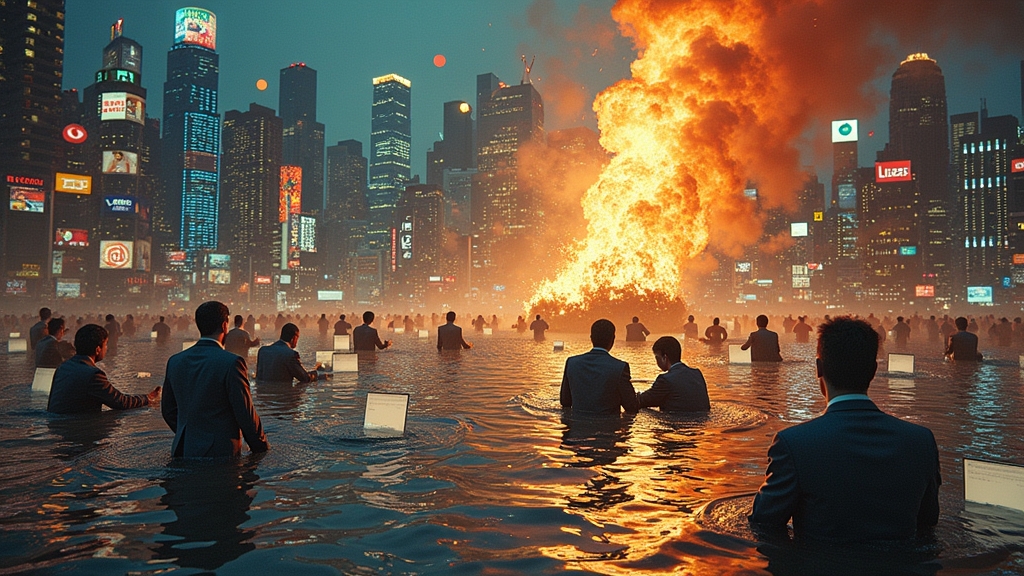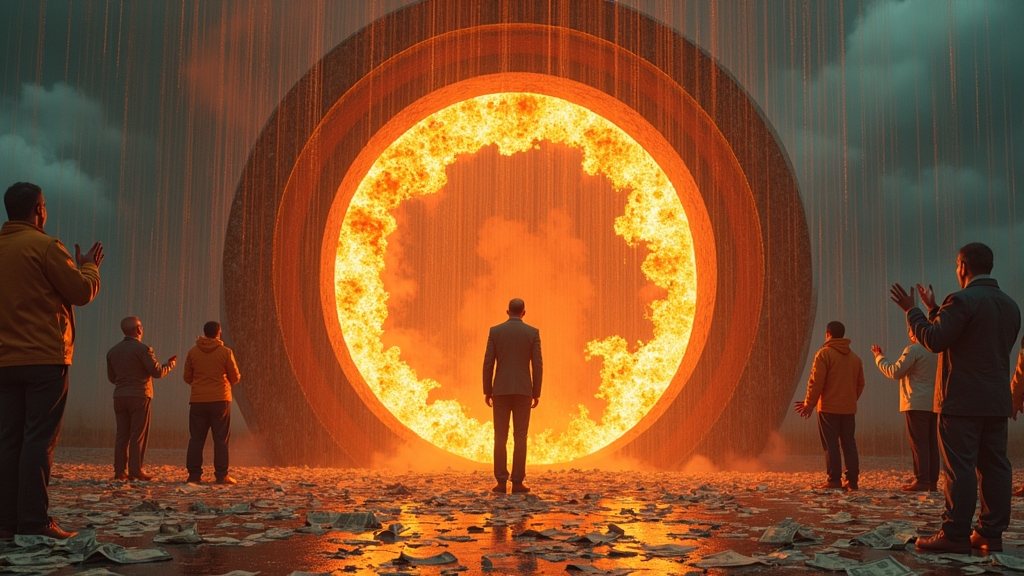ADVERTISING EXEC FLEES SINKING SHIP AS AI THREATENS TO MAKE “CREATIVES” ACTUALLY CREATIVE
Mark Read, CEO of advertising giant WPP, announced his resignation today after realizing that artificial intelligence can now generate mediocre marketing campaigns in 0.3 seconds instead of the industry standard three-week cocaine-fueled brainstorming bender.
LEADERSHIP EXITS BUILDING EXACTLY ONE FLOOR BEFORE IT COLLAPSES
After three decades of selling people sh!t they don’t need through increasingly manipulative tactics, Read is abandoning what industry insiders describe as “a f@#king dumpster fire floating down a river of irrelevance.” The company’s stock has plummeted to five-year lows as investors suddenly realize that paying humans millions to create slightly different versions of the same six ads might be unnecessary.
“I’ve given WPP my heart and soul for 30 years,” Read allegedly told colleagues while backing slowly toward the exit, severance package clutched firmly in hand. “And now I’m giving it my back.”
SHAREHOLDERS SHOCKED THAT “CREATIVE INDUSTRY” MIGHT REQUIRE ACTUAL CREATIVITY
WPP’s board has launched an emergency search for a new CEO, with the primary qualification being “someone who can explain what the f@#k we even do anymore.” Sources close to the matter suggest the board is considering several top candidates including a Magic 8-Ball, a dartboard, and ChatGPT wearing a tie.
Dr. Obvious Decline, professor of Digital Extinction at the University of Hindsight, explained: “Advertising agencies are discovering what coal miners, travel agents, and horse-drawn carriage manufacturers already learned the hard way—technology doesn’t care about your business model. It’s like watching dinosaurs discuss their retirement plans while the meteor is entering the atmosphere.”
ADVERTISING INDUSTRY DISCOVERS IT’S THE PRODUCT BEING DISRUPTED, NOT THE DISRUPTOR
According to a completely made-up industry survey, 87% of advertising professionals now spend their days alternating between drinking heavily and updating their LinkedIn profiles. The remaining 13% are busy writing think pieces about “human creativity in the age of AI” while algorithm-generated ads consistently outperform their work by 43%.
“What people don’t understand is that there’s still a vital role for human advertising executives,” claimed Professor Dee Lusion, Chair of Creative Self-Importance at Denial University. “Algorithms can’t expense $900 client dinners or take three-hour liquid lunches or claim their Porsche as a business necessity. That human touch is irreplaceable.”
WPP’s interim strategy involves pivoting to what executives call “post-advertising advertising,” which appears to consist primarily of charging clients to explain why they shouldn’t fire their agency despite all evidence to the contrary.
As Read prepares to exit, speculation grows about his next move, with sources suggesting he’s considering lucrative opportunities in blockchain, metaverse consulting, or teaching executives how to gracefully abandon ship just before it hits the iceberg.
“When the history of advertising is written by our new silicon-based thinking rectangles,” concluded industry analyst Penny Wise, “Mark Read will be remembered as the man who bravely faced the future by running away from it as fast as humanly possible.”





